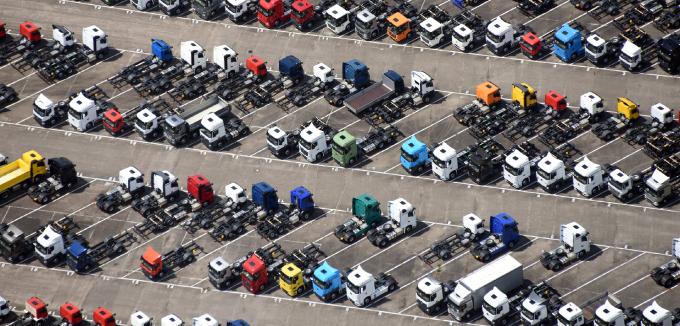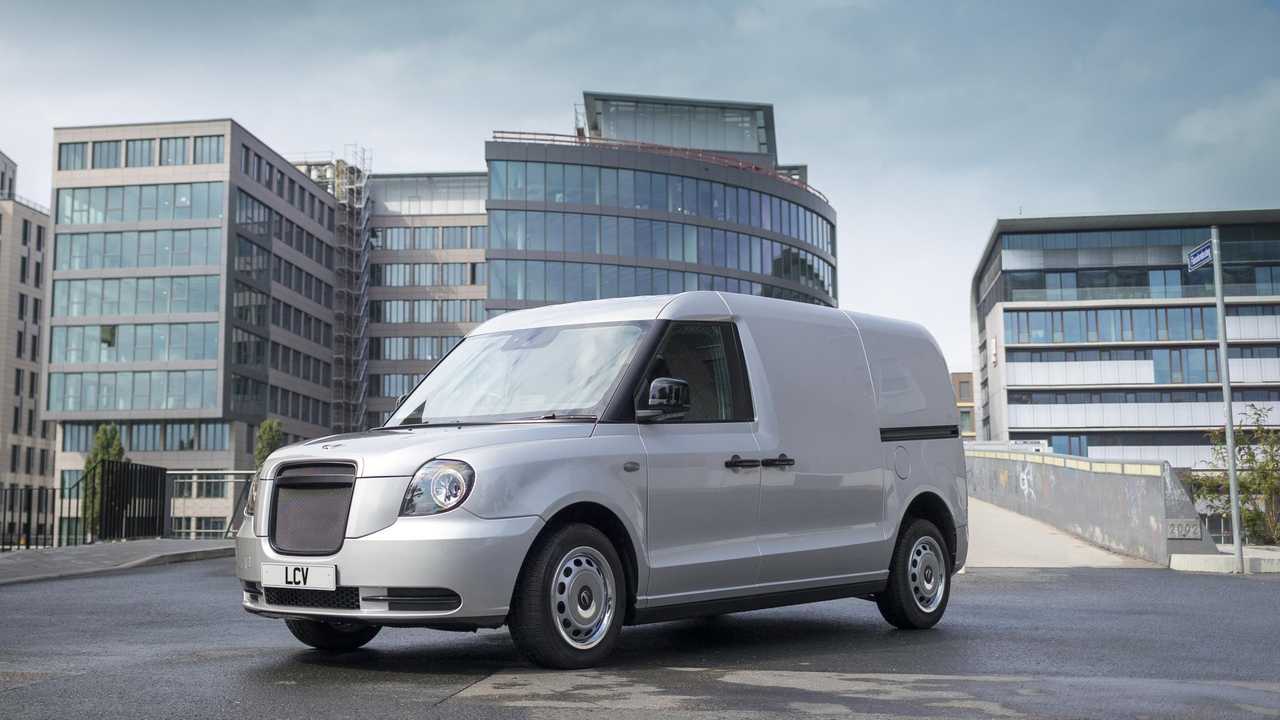“The connected solutions bring increased vehicle and construction equipment uptime for our customers, better safety for drivers, operators and other road users – and of course – less emissions of carbon dioxide. The first million connected assets is only the start, we are committed to remain a leader in this field,” says Martin Lundstedt, President… Continue reading The Volvo Group Passes the Milestone of One Million Connected Customer Assets for Increased Sustainability, Uptime and Safety
Tag: Volvo
2 Oct 2019 GKN Automotive continues partnership with Panasonic Jaguar Raci…
GKN Automotive and Panasonic Jaguar Racing to share knowledge and expertise throughout Formula E season Team sponsorship continues GKN Automotive’s remarkable motorsport heritage GKN Automotive offers unrivalled experience with more than one million eDrive systems produced GKN Automotive, the world’s leading supplier of automotive all-wheel drive and electric driveline technology and systems, is continuing its… Continue reading 2 Oct 2019 GKN Automotive continues partnership with Panasonic Jaguar Raci…
Volvo UK boss: focus is electric XC40 and online sales
Volvo’s new UK boss has outlined a three-point plan focused on electric cars, boosting online sales and improving dealer profitability – while Brexit is lower down his priority list. In his first interview since taking over in June, Kristian Elvefors said his first big challenge is to launch Volvo’s first all-electric model, a variant of… Continue reading Volvo UK boss: focus is electric XC40 and online sales
Polestar 2 wants to take a chunk of market share from Tesla Model 3
Rob Nikolewski, The San Diego Union-Tribune Published 12:01 a.m. ET Sept. 30, 2019 There’s a new electric vehicle brand on the block, and it’s chosen a handful of target cities to show off its high-performance sedan with lofty ambitions — to take a chunk of market share from the hot-selling Tesla Model 3. It’s the… Continue reading Polestar 2 wants to take a chunk of market share from Tesla Model 3
Illegal price fixing: Deutsche Bahn calls for half a billion truck cartel
DPA Trucks on Daimler grounds: The Stuttgart manufacturer was also involved in the agreements of the truck manufacturers. In connection with the so-called truck cartel, Deutsche Bahn claims compensation of around half a billion euros. This sum would have paid the railway, the Bundeswehr and other companies including interest due to the price fixing of… Continue reading Illegal price fixing: Deutsche Bahn calls for half a billion truck cartel
Volvo XC40 EV will be first equipped with next-gen active-safety sensors
The upcoming XC40 EV will roll off the assembly line equipped with the next generation of active-safety sensors, Volvo outlined Wednesday, as it prepares to launch its very first all-electric vehicle.
Volvo is just a month away from introducing the XC40 EV, and in the lead-up to its formal debut, the company is teasing the technology that will make it a step forward for Volvo while retaining all of the characteristics that helped the company build its worldwide reputation as a leader in automotive safety.
The XC40 will debut technology from the joint-venture project between Volvo and Autoliv dubbed Zenuity. The partnership was formed to develop self-driving technology, and the Advanced Driver Assistance Systems (ADAS) sensor platform that will be installed in the XC40 EV is the first implementation of that ecosystem in one of Volvo's automobiles.
ADAS is scalable, and while the XC40 will not employ a version of it that is capably of full autonomous driving, it is a key step in the process of developing autonomous vehicle tech.
Electric Volvo XC40's powertrain
However that's not the only thing that will make the new XC40 EV one of the safest cars on the road. Volvo employed several traditional techniques to improve both its ability to avoid accidents and its crashworthiness when it can't. “The fundamentals around safety are the same for this car as for any other Volvo. People are inside, and the car needs to be designed to be safe for them,” said Volvo's Malin Ekholm in the announcement.
Volvo placed the XC40 EV's battery pack in its floor, improving its center of gravity. The safety structure around it was developed specifically to protect the battery (along with vehicle occupants) in the event of a collision.
We expect more information to trickle out ahead of the XC40 EV's debut on October 16.
LEVC Presents Extended-Range EV TX Shuttle And LCV In Frankfurt
LEVC introduces Shuttle in Europe and hints at a light commercial van. The London EV Company (LEVC) was present at the 2019 Frankfurt Motor Show with its latest product, the TX Shuttle, which is basically the shuttle versions of the TX Taxi plug-in hybrid (series-hybrid configuration). Both versions are equipped with the same 31 kWh… Continue reading LEVC Presents Extended-Range EV TX Shuttle And LCV In Frankfurt
CATL considers U.S. plant, targets 45 percent energy-density boost in 5 years
China’s Contemporary Amerex Technology Co., better known as CATL, has in the past several years become a global battery giant.
Last week one of its senior executives revealed to Reuters that the company is considering a manufacturing expansion into North America, even though the market for EVs will lag that of China and Europe.
The company is already planning a battery “gigafactory” of its own in Erfurt, Germany—a facility that will start production in 2021 and be one of the largest battery plants in Europe.
The plant will make cells and modules, which is part of CATL’s plan to mastermind the whole pack and save size and weight. Through its cell-to-pack technology, it says it can increase mass energy density by 10-15 percent and increase volume utilization efficiency by 15-20 percent.
CATL products – 2019
CATL announced firm numbers for the improvements. It can now accomplish more than 200 watt-hours per kilogram with its automotive lithium-ion batteries for EVS (up from 180 wh/kg).
Energy density with its current chemistries has reached 240 watt-hours per kilogram, and it’s targeting 350 wh/kg—a 45 percent improvement—by 2024.
The battery company also announced that it’s working to improve its total battery life to 373,000 miles (600,000 km), with other improvements including uniform self-heating technology built into the battery for better cold-weather performance plus a “turbo charging solution” for larger (C/D-class) vehicles that would allow 0-80 percent charging in just 9 minutes.
2020 Mini Cooper SE Hardtop
CATL recently announced a collaboration with Bosch, in which the battery supplier will supply cells for Bosch’s 48-volt systems globally. It’s already forged supply partnerships with Volkswagen, Daimler, Jaguar Land Rover, Volvo, Honda, and Toyota, and it will be making cells for upcoming BMW and VW models, as well as the 2020 Mini Cooper SE, at the plant in Germany.
Earlier this summer it was reported that LG Chem was considering a second U.S. manufacturing plant to supply Volvo, among other potential customers. And earlier this year South Korean rival SK Innovation broke ground on a $1.7 billion battery plant in Georgia, expected to supply Mercedes-Benz and Volkswagen, among others.
China’s CATL unveils cell-to-pack battery platform
FUZHOU, Sept. 13 (Xinhua) — Contemporary Amperex Technology Co., Ltd. (CATL), China's largest automotive lithium-ion battery maker, unveiled its focus on the development of cell-to-pack (CTP) batteries to improve efficiency and lower costs.
To safely and efficiently manage the battery cells mounted in an electric vehicle (EV), battery cells are installed in modules and packs. Generally, a cluster of cells make up a module and a cluster of modules make up a pack. Ultimately, each electric vehicle is installed with one pack.
CTP, the company's latest product platform, skips the process of battery modules and allows cells to be directly integrated into packs.
Using the CTP technology, which includes more than 70 core patents, CATL can increase mass-energy density by 10 to 15 percent, improve volume utilization efficiency by 15 to 20 percent and reduce the amount of parts for battery packs by 40 percent.
A CTP battery can increase the system energy density from 180 Wh/kg to more..
Applied Intuition raises $40 million for autonomous vehicle simulation tools – VentureBeat
Simulators are invaluable assets for companies developing autonomous vehicles (AVs). These tools are used by Waymo, GM’s Cruise, Zoox, and countless others to validate systems’ scalability and safety, not to mention training the machine learning algorithms underlying car makers’ real-world vehicles. But not every company has the resources to build their own software simulator from… Continue reading Applied Intuition raises $40 million for autonomous vehicle simulation tools – VentureBeat

